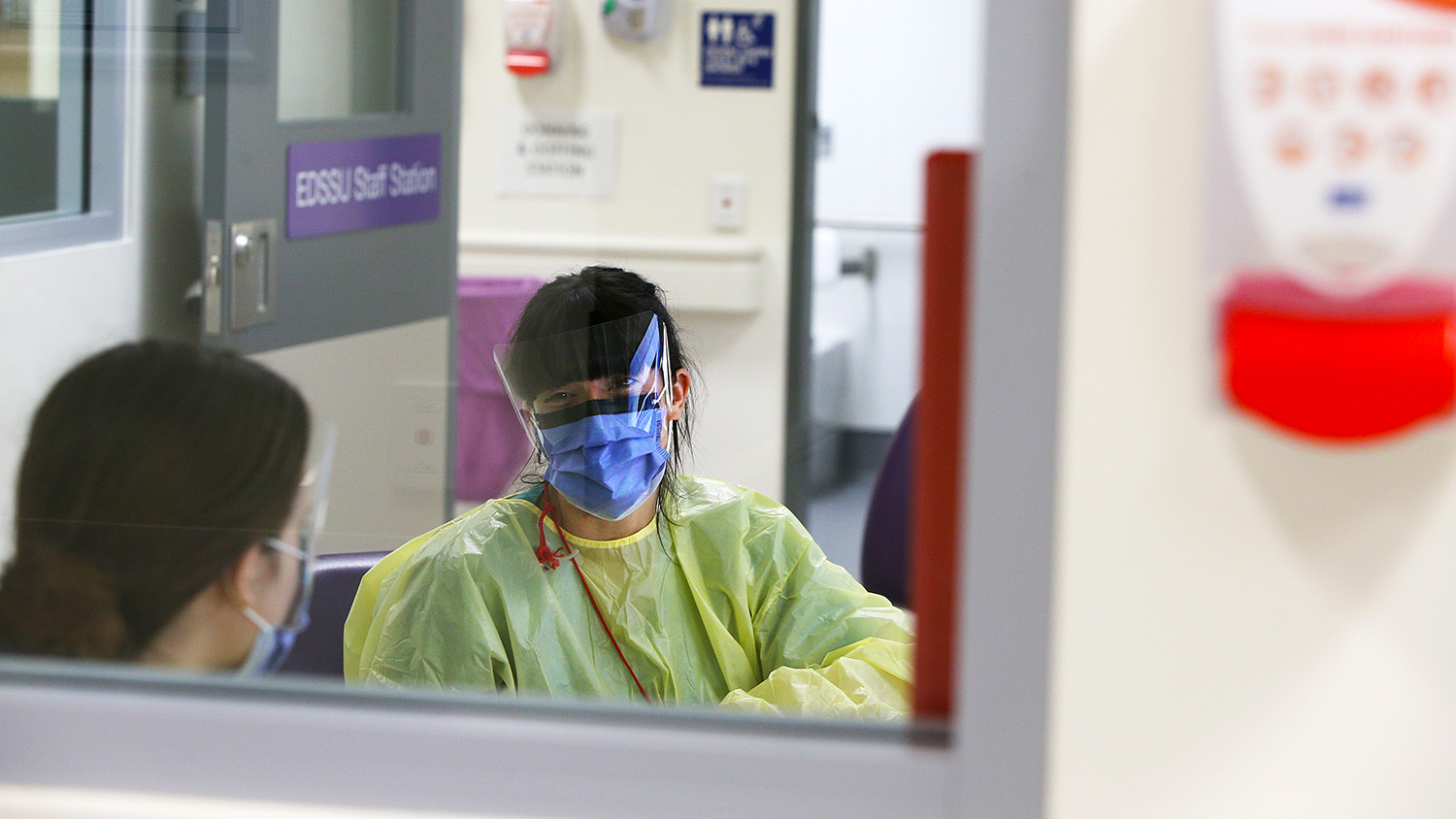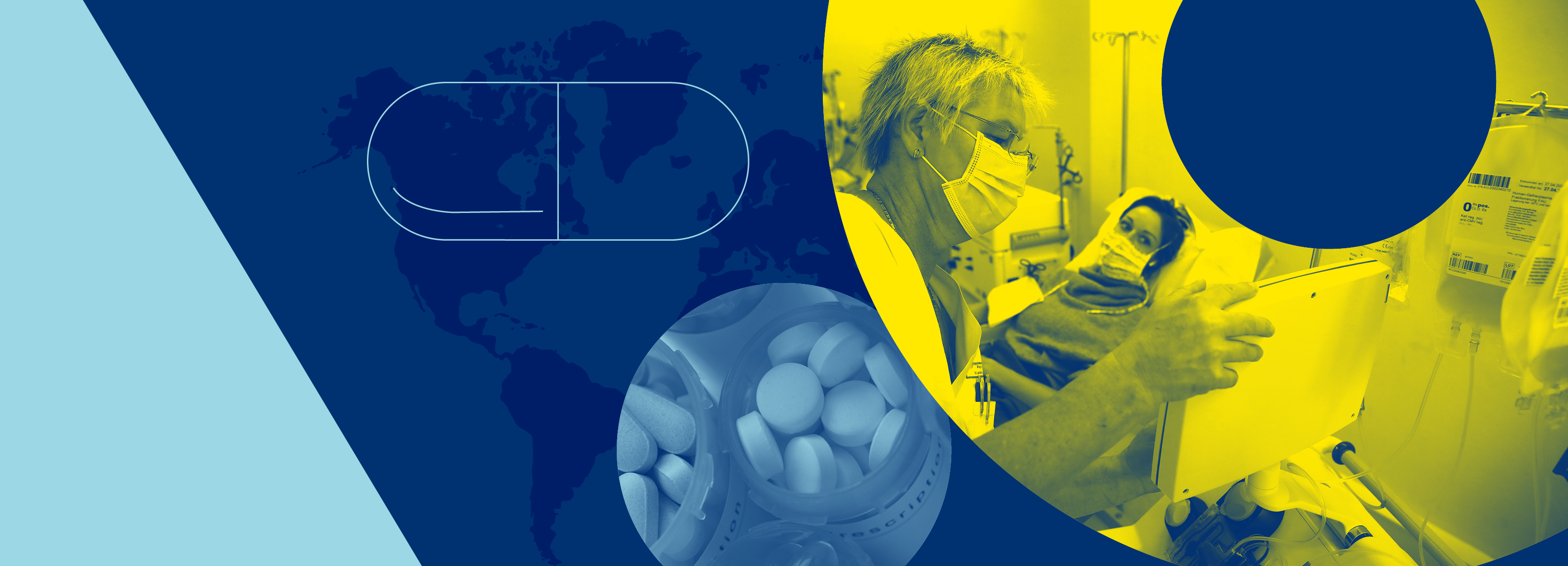What drugs are working as treatments for Covid-19?
From existing antivirals to new antibody therapies – researchers are working at incredible speed to find the best drugs to treat Covid-19.

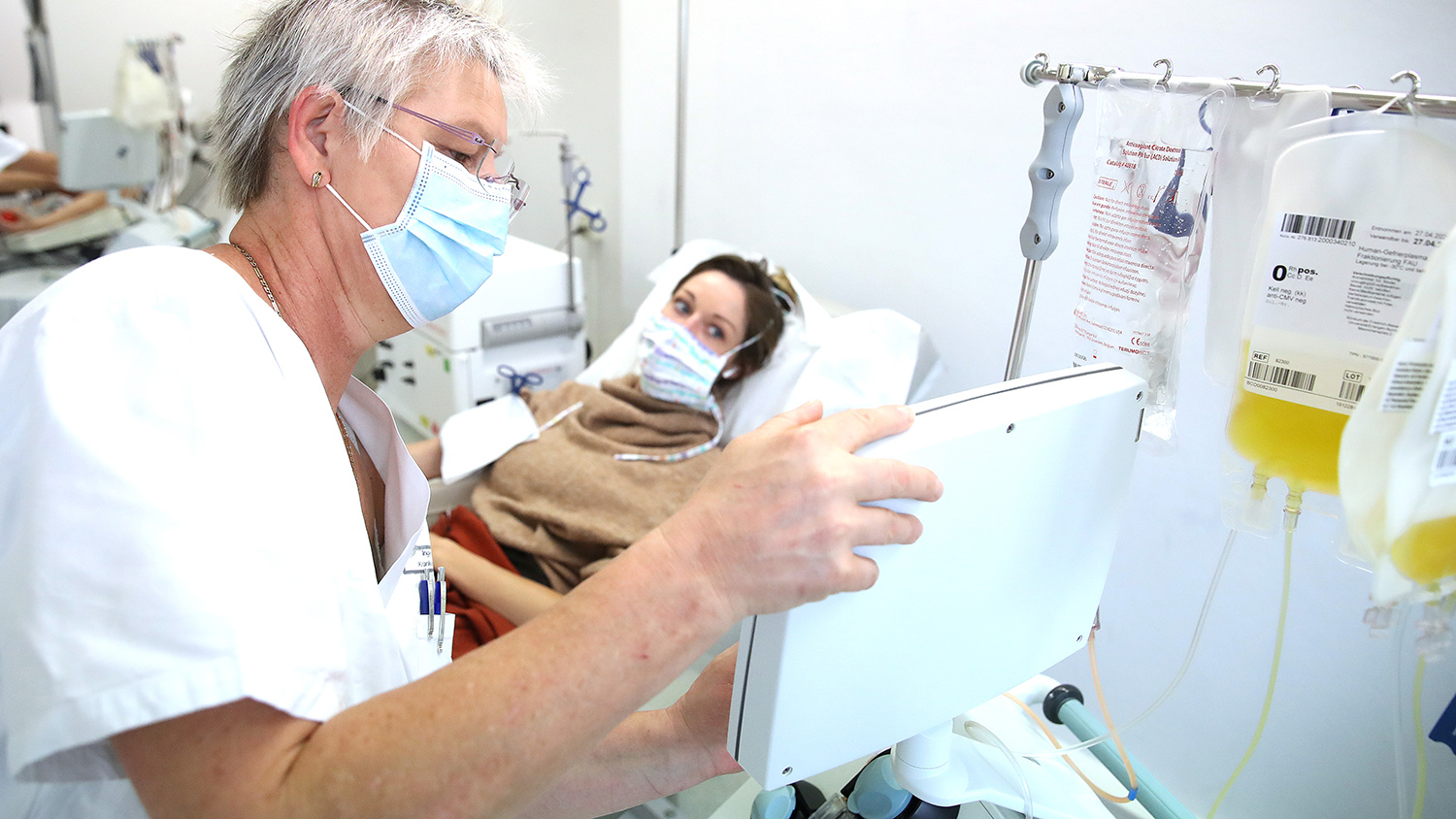
So far, only one drug has proved effective against Covid-19 – dexamethasone. Even though vaccination has started in a growing number of countries, Covid-19 continues to spread, and so the search for safe and effective treatments must continue. Teams of scientists are looking into more than 300 potential treatment options, running thousands of studies around the world.
We still know too little about the coronavirus that causes Covid-19 – including how new variants might affect people differently. So researchers are taking a wide range of approaches to find effective and safe treatments.
The three main approaches are: antivirals, anti-inflammatory drugs and antibody treatments.
Antivirals
Antiviral drugs work by preventing a virus from developing inside the human body.
Every virus is different and attacks cells in specific ways – and the antiviral drugs that fight them off are specific too. Very rarely does an antiviral built for one virus also work for different ones. But it can happen: for example, some HIV drugs have also proved effective in fighting off hepatitis B.
It would be great to have an antiviral specific to Covid-19, but that could take years to discover. In the meantime, researchers are hopeful that some existing antivirals, whether already on the market or experimental, could have some useful effect against the novel coronavirus.
So far none of the existing antivirals under research have proved to work – it's really important to know this, so researchers and clinicians can look at other potential treatments. Examples include:
- Remdesivir, an antiviral tested as an Ebola treatment. Although it has been approved or authorised for emergency use in places including the European Union, the US and India, the WHO Solidarity Trial showed that remdesivir does not reduce the risk of dying of Covid-19 or the length of time patients need to stay in hospital.
- Hydroxychloroquine, a drug used to treat malaria and rheumatology conditions. After receiving high-profile attention in the media, the large-scale RECOVERY Trial showed that hydroxychloroquine has no benefit for hospitalised patients with Covid-19.
- Lopinavir-ritonavir, a combination of antivirals used to treat HIV. The RECOVERY Trial showed it had no clinical benefit for Covid-19 patients.
How Covid-19 treatments could work

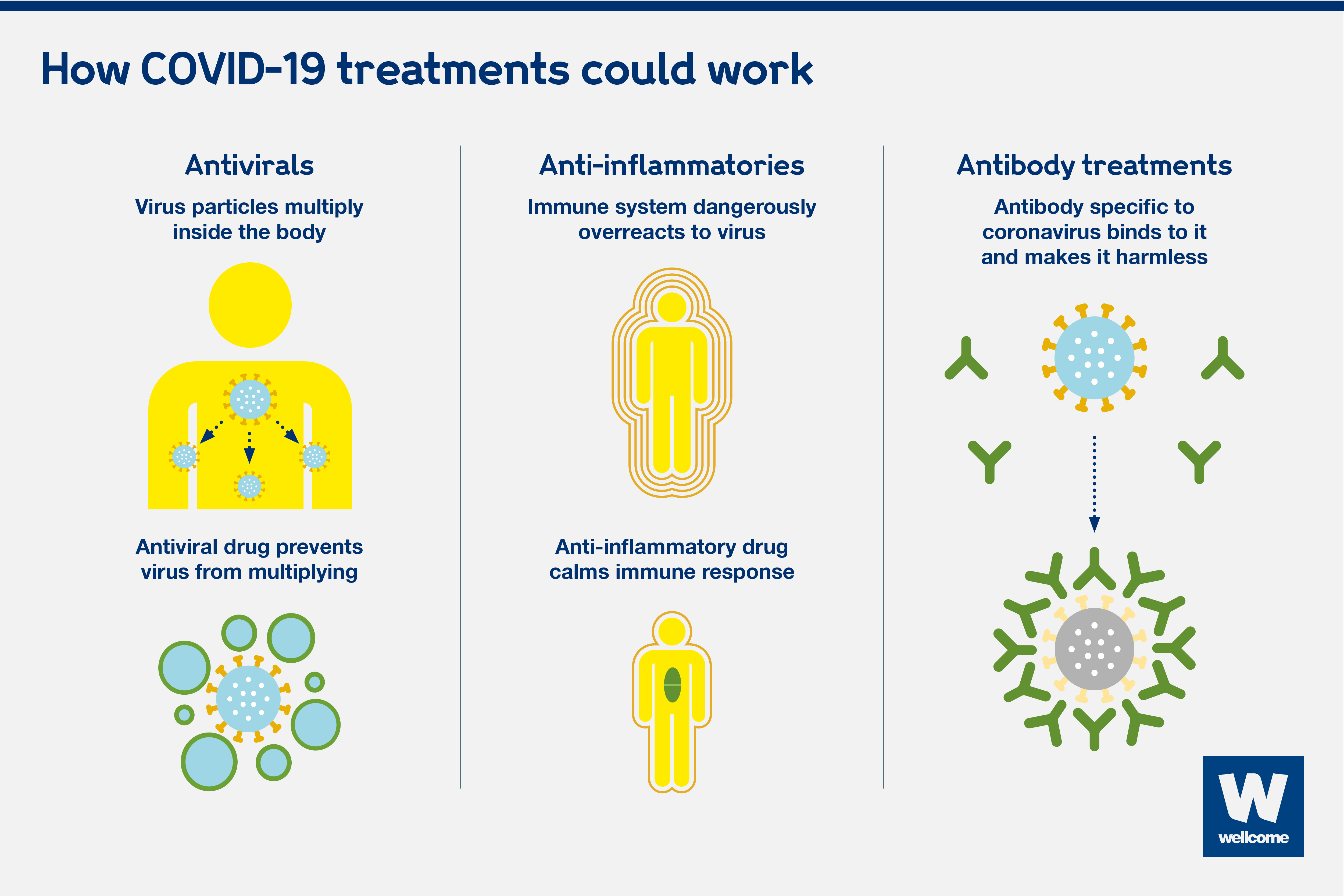
Anti-inflammatories
Anti-inflammatory drugs work by calming the immune system. In people with severe Covid-19, the body’s violent reaction in trying to fight off the virus can cause serious harm and even death. Anti-inflammatories can reduce this response. Researchers have found both positive and negative results. They have looked at:
- Dexamethasone, a type of steroid used to reduce inflammation in a range of conditions, including sore throats. This was the first drug to be shown to be effective in reducing death rates – by up to one third in hospitalised patients with severe respiratory complications of Covid-19, according to the RECOVERY Trial.
- Interferon beta-1a, used to treat multiple sclerosis by stopping the immune system from damaging the coatings of nerve cells. Interferons have previously been found to show some effects against MERS-CoV and SARS, which are also caused by coronaviruses, but the WHO Solidarity Trial showed that it had little or no effect on Covid-19 patients.
Antibody treatments
Antibodies attack the virus directly. Unlike antivirals and anti-inflammatory drugs, antibodies are produced naturally by people who have had an infection and recovered. When given to patients who are fighting off an infection, antibodies can boost their immune response and stop the virus from causing further harm.
There are two ways that antibodies can be used:
- Convalescent plasma can be extracted from the blood of Covid-19 survivors and injected into patients who are fighting the disease. This may help, but the only source of it is blood donors who have had the infection, so there will not be nearly enough supply to treat a large number of patients. Hospitals around the world are already using this approach, but these efforts are necessarily local and small-scale.
- Monoclonal antibodies are antibodies specific to Covid-19. While they also originate in the blood of people who have recovered, that is only the starting-point. Scientists select the relevant antibodies, extract and expand them, and then manufacture them in large quantities. Several clinical studies are underway, with early data from Lilly and Regeneron showing promising signs that these antibodies might help people with Covid-19 recover faster. A few countries, including Canada and the US, have approved them for emergency use. But monoclonal antibodies are very expensive and difficult to manufacture, so there is a risk that, even if proven effective, they will not be widely available or accessible to people around the world.
Potential new drugs have to go through years of laboratory work, animal testing and human clinical trials before they’re proved to be safe and effective against a specific disease. So developing a new antiviral against the novel coronavirus is not the best hope for containing the ongoing pandemic.
This is why researchers have been looking into existing drugs, some experimental and some already licensed, that were developed for other infections, such as Ebola and malaria. These drugs have a head start and we can establish more quickly whether they are useful against Covid-19.
Experimental drugs, such as remdesivir, may have already been tested in animals for safety. But they usually have to go through safety trials in humans, to assess what the safe dose is, before moving into clinical trials to assess how effective they are.
Existing antivirals have already been proved to be safe for humans, at a specific dose – so what needs to be done now is test whether they work in people with Covid-19. Although there are many small studies investigating the effectiveness of drugs like chloroquine, these can only give indications, not results that are conclusive enough to justify their approval. What we need are large randomised controlled trials, with hundreds or thousands of people enrolled across the world, to tell us whether existing antivirals bring benefits to people with Covid-19.
The research needed to see which Covid-19 treatments work

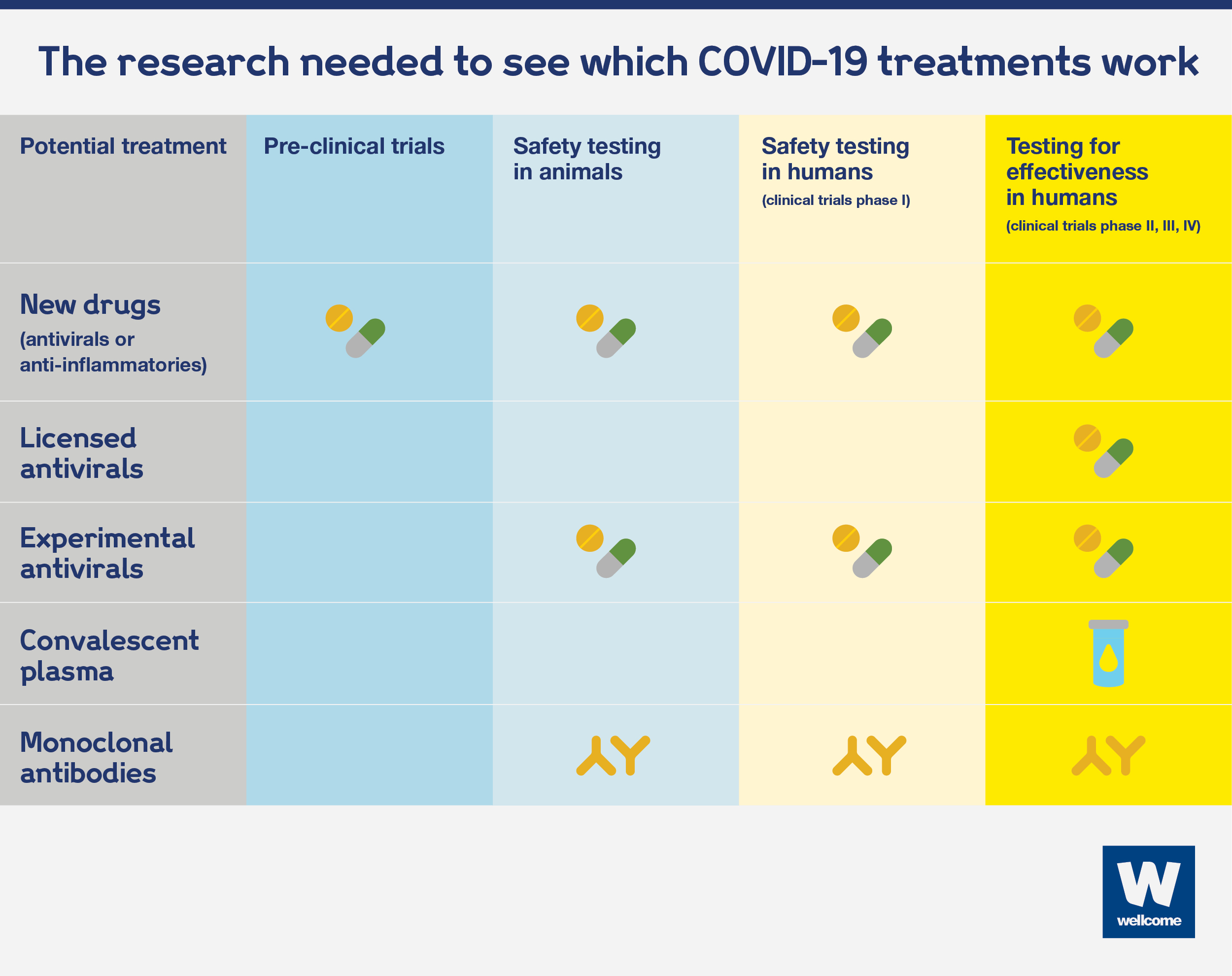
Existing anti-inflammatory drugs, such as interferon beta-1a, are also already known to be safe if used in certain ways. But because of the way these drugs interact with the immune system, we need more data to understand whether they are safe in the context of a Covid-19 infection. This can be done through small studies first, to assess what the right dose is, before moving into large randomised controlled studies to test their effectiveness.
Monoclonal antibodies are a new potential treatment, so they also have to go through safety trials in humans. But because these are natural antibodies originating in human bodies, not synthetic compounds, safety trials will take less time to conduct. After that, effectiveness studies can get going.
Large randomised clinical trials – such as the World Health Organization’s Solidarity clinical trial and the UK’s RECOVERY Trial – are essential for getting robust data about which treatments work against Covid-19. Both of these are looking at several treatments, including some of those listed above, but the studies are designed to be adaptable ongoing platforms – so they can quickly stop testing drugs that prove not to be working, and add new ones as they develop.
Covid-19 has reached every corner of the world, and it will keep spreading unless it is controlled everywhere. To stop the pandemic, to get societies back to normal, and to get economies moving again, any treatments and vaccines must be made accessible to everyone who needs them, everywhere in the world, regardless of their ability to pay.
For that to happen:
governments, industry and philanthropy must pool resources to pay for the risk, the research, manufacturing and distribution to ensure everyone has access to treatments
clinical trials need to take place across the world, to make sure treatments work for everyone
national governments must work together to ensure that coronavirus treatments can be manufactured in as many countries as possible and distributed globally to everyone who needs them.
More funding is needed to support urgent research. And global collaboration is paramount for ensuring global access to treatments. To promote this, the ACT-Accelerator was launched. Through this collaboration, the World Health Organization, governments and international health bodies have pledged to make sure that any tools developed to fight the current pandemic – vaccines, diagnostics and treatments – will be distributed equitably to everyone who needs them.
This explainer was originally published in May 2020 and updated in January 2021.

Early results of the first trials for Covid-19 monoclonal antibodies are showing promising signs that they could have an effect on non-hospitalised patients.
